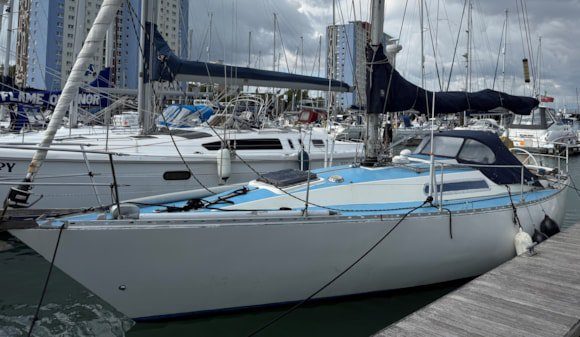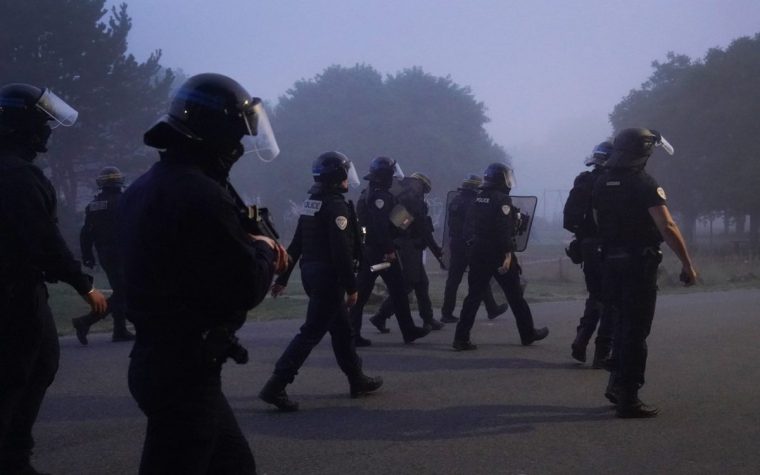Dozens of migrants are known to have been brought into the UK on pleasure craft in recent years, arriving at private marinas across the UK
Small-boat crossings have reached record highs this year, but there is another hidden migration route posing an “existing threat” to UK security.
Dozens of migrants are known to have been brought into Britain on yachts in recent years, arriving at private marinas across the country.
However, experts say the true scale of smuggling via pleasure boats is unknown.
Seven people were arrested this week after a yacht carrying suspected migrants was intercepted in the English Channel.
In April, 21 Albanians were found crammed below the deck of a yacht in Cornwall.

Security insiders said that the use of pleasure boats to smuggle migrants was not new and “happens from time to time”, with the National Crime Agency (NCA) dealing with “many similar cases before”.
They said that this type of crossing would be more expensive than passage by small boat, but that the cost could vary dramatically depending on a range of different factors.
One security insider said that yacht smuggling “isn’t a rising trend” but “an existing threat.”
Yacht smuggling for illegal work, rather than asylum
A former British soldier was jailed in 2019 after smuggling dozens of Vietnamese migrants by yacht into private marinas in seaside towns across south-east England.
He said that most of those he transported did not want to claim asylum or be found by authorities, and that some were going to work on cannabis farms.
In contrast, 99 per cent of small-boat arrivals made an asylum claim last year.
The former serviceman told the BBC that he was paid £12,000 per migrant smuggled by a Vietnamese woman involved in the drug trade in the UK, and would usually smuggle four people per trip.
Unlike the yachts, smugglers are not usually on board small boats. These are instead steered by a migrant, usually for a reduced fee.
‘Look out for suspcious behaviour at ports and marinas’
The National Crime Agency (NCA) is dealing with more than 80 live investigations into immigration crime gangs, including those using “general maritime”.
It said that while small boats continue to be the most common method utilised by people smugglers, they do also use other means, including yachts and pleasure craft.
“These types of crossings tend to be more expensive and more difficult to organise,” the NCA added.
“We continue to appeal to members of the public who live or work around small ports, marinas, waterways or moorings to report unusual or suspicious behaviour to the authorities.”
Yacht smuggling ‘going on for a long time’
Dr Peter Walsh of the University of Oxford’s Migration Observatory said that yacht smuggling “goes back some time.”
“[The ex-soldier’s] argument was that this is relatively low risk because private marinas, are not well surveilled, and it’s a very porous border.”
But Dr Walsh said the true scale of the operation was unknown. “You get occasional media reports that tell you it’s going on, but we just don’t know what the full scale is. They’re not isolated incidents.
“The thing with the small boats across the Channel is we see them all, so we know what the level is, but for these other routes, we don’t. It’s been going on for a long time, and you just don’t hear about it. There’s no spectacle.”

It is not clear how much more a yacht crossing would cost compared with a small boat.
Dr Walsh added: “It doesn’t matter how luxury, if it’s sufficiently large and you can get sufficiently high numbers of people in there to make the business model work, would these individuals be paying sums that vastly exceed the typical small boat route? People may they consider that even with an increased cost its worthwhile because of a perceived lower risk of detection.”
He said there was no indication that this route would see an uptick in the short term, but that the UK-France return agreement could change smuggling patterns long-term.
“If the returns are highly publicised and information that people have been unsuccessful begins to percolate through networks, that could have a deterrent effect and divert people into other routes,” Dr Walsh said.
“I don’t see anything at the moment that would indicate that we’re going to see a big rise in these other routes.”
Border Force said that the security of harbours and marinas rests with private operators.
